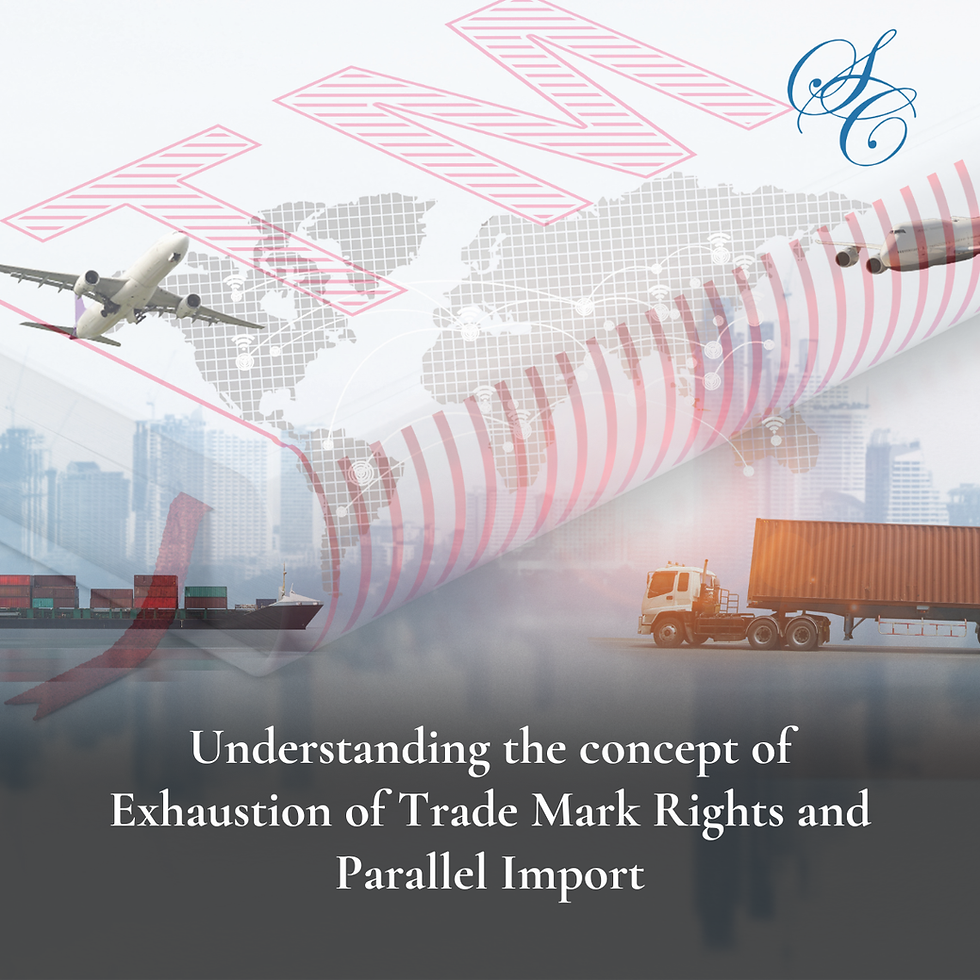Trademark and amp; Copyright Suits Against Non-Competitors
- Sarwajeet Singh
- Nov 21, 2017
- 3 min read
An infringing competitor is a bane. However, in a suit for injunction, an infringing non-competitor could be the greater annoyance. The likelihood of succeeding against such non-competitors has as much to do with the ownership of strong copyright and trademark claims, as it has to do with creative lawyering.
If infringed, copyright ownership can even entitle a tax consultancy firm to an injunction against a seller of dairy products. Both business proximity and size are irrelevant in a copyright claim, and so is deceptive similarity. Although copyright ownership is undoubtedly useful in infringement actions against unrelated businesses, it is wrought with the limitation of copyright subsistence. For example, while the copyright owner of an artistic Tiger Design, who prints the logo on biscuit packets, would succeed against a shoemaker who prints the exact logo on his shoeboxes, the biscuit seller may not enjoy similar success against a shoemaker printing a different tiger design. Copyright, after all, does not entitle one to an injunction against all possible depictions of tigers, even if trademark law would render such depictions deceptively similar.
In addition to copyright, injunctions against infringing parties in unrelated businesses can also be claimed on the basis of trademark rights (both statutory and common law). To claim an injunction, the claimant must typically show that a defendant’s use of the mark/trade dress dilutes his brand. A biscuit seller, who has built his brand identity on the concept of health-consciousness, would rightfully fear brand dilution should a tobacco manufacturer use a visually similar logo. However, evidencing brand dilution is not always such a cake-walk. The same biscuit-seller may find it difficult to injunct a toy-manufacturer from using a visually similar logo. In such cases, the strength/ reputation of the complainant’s brand plays an important role. If the biscuit maker were an industrial giant that has, through many years of extensive use, etched its logo upon consumer memory, consumers may still associate the toy-manufacturer with the biscuit-maker. Thus, unless copyright subsistence is clear and well-evidenced, it is advisable to base a lawsuit against an infringing party in a dissimilar business on trademark grounds as well, although, the threshold of evidence would be very high in such cases.
Significantly, the grant of an injunction on trademark grounds is heavily influenced by evidence and the surrounding facts and circumstances of the case at hand (unlike copyright – a relatively straight-forward statutory claim). Thus, overcoming weaknesses in a complainant’s case (such as the defendant being in an unrelated field of business) is possible, if deceptive similarity can be shown through the projection of an equitable narrative of facts. For example, the fact that the defendant was a former employee of the complainant who went on to use a similar logo (albeit in a non-competing field), could be used to build a case around the defendant’s dishonest adoption of the mark. A case of dishonest adoption can also be built around the defendant’s explanation (or lack of explanation) for adopting the infringing mark. Even besides dishonest adoption, there is tremendous scope for creative lawyering in shaping a narrative that improves the likelihood of success in seemingly borderline cases. The ability to do so and dismiss the defendant’s version of reasonableness is, essentially, the measure of litigating lawyers.
If a copyright claim is untenable, a lawsuit based on trademark rights may still hold good against a party in an unrelated business. Such a suit is greatly aided by the reputation of the complainant’s trademark. But, that is not to say that only behemoth brands may pursue trademark claims against unrelated businesses. Since the likelihood confusion (the essence of a trademark claim) is, ultimately, dependent on evidence and the facts and circumstances of each case, there is sufficient scope to deploy creative lawyering as a means to an injunction even in seemingly borderline cases. There is, however, no substitute for the ownership of strong copyright and trademarks.




Comments